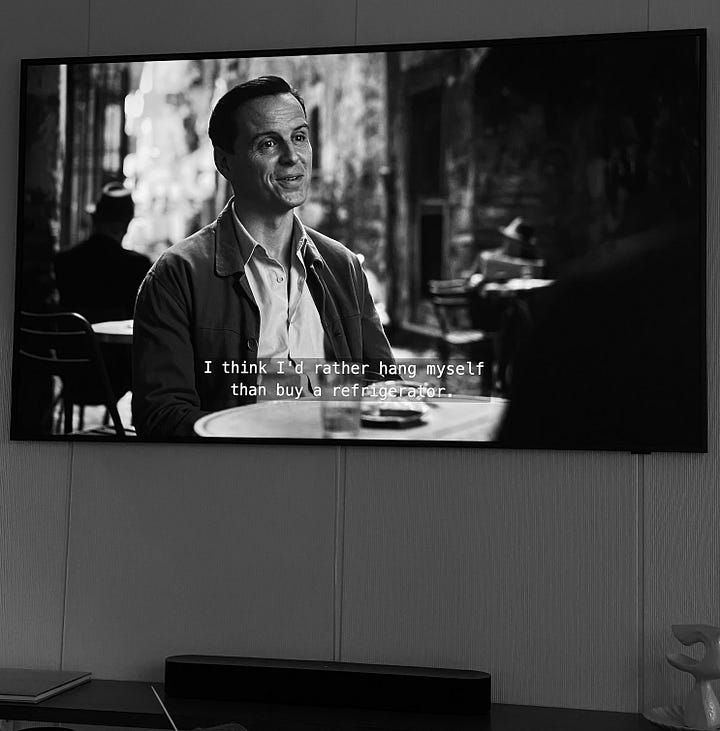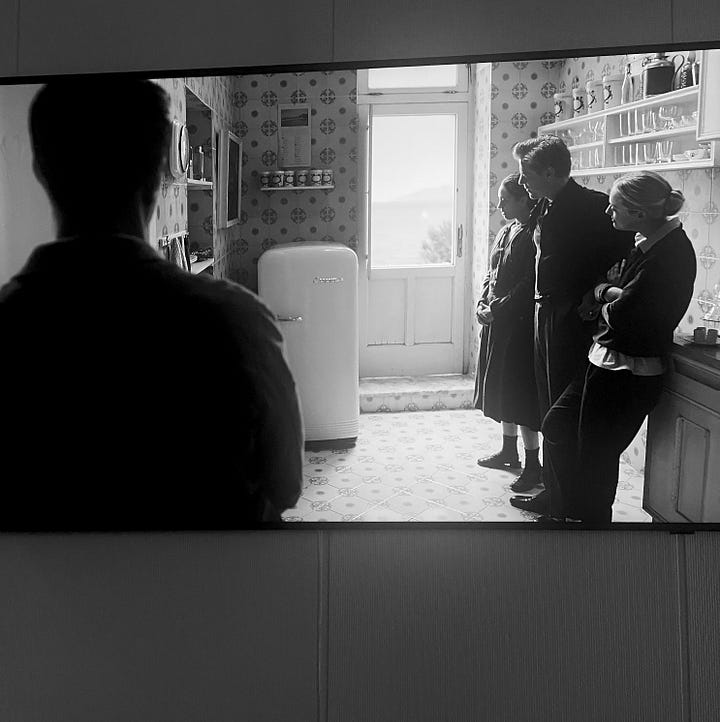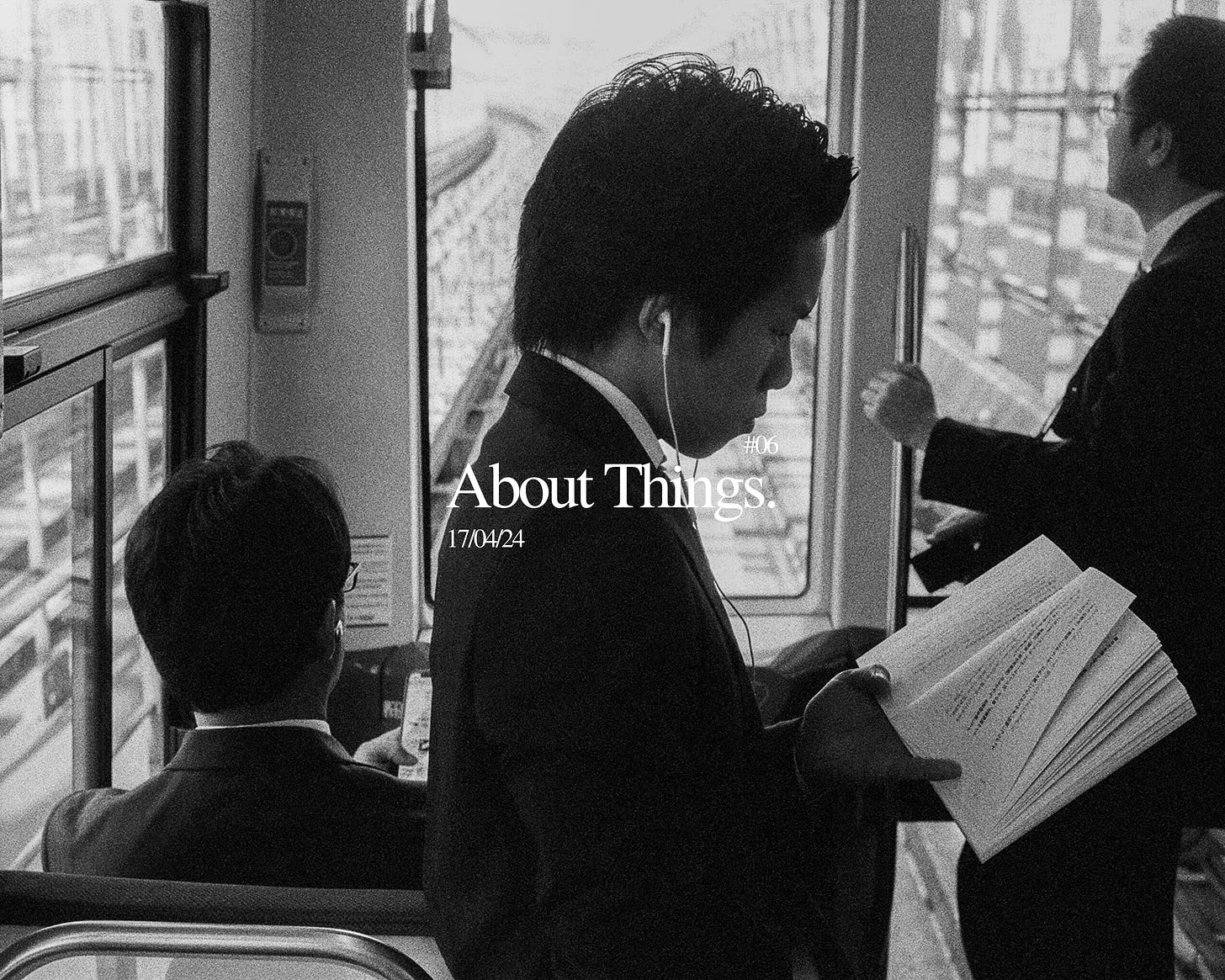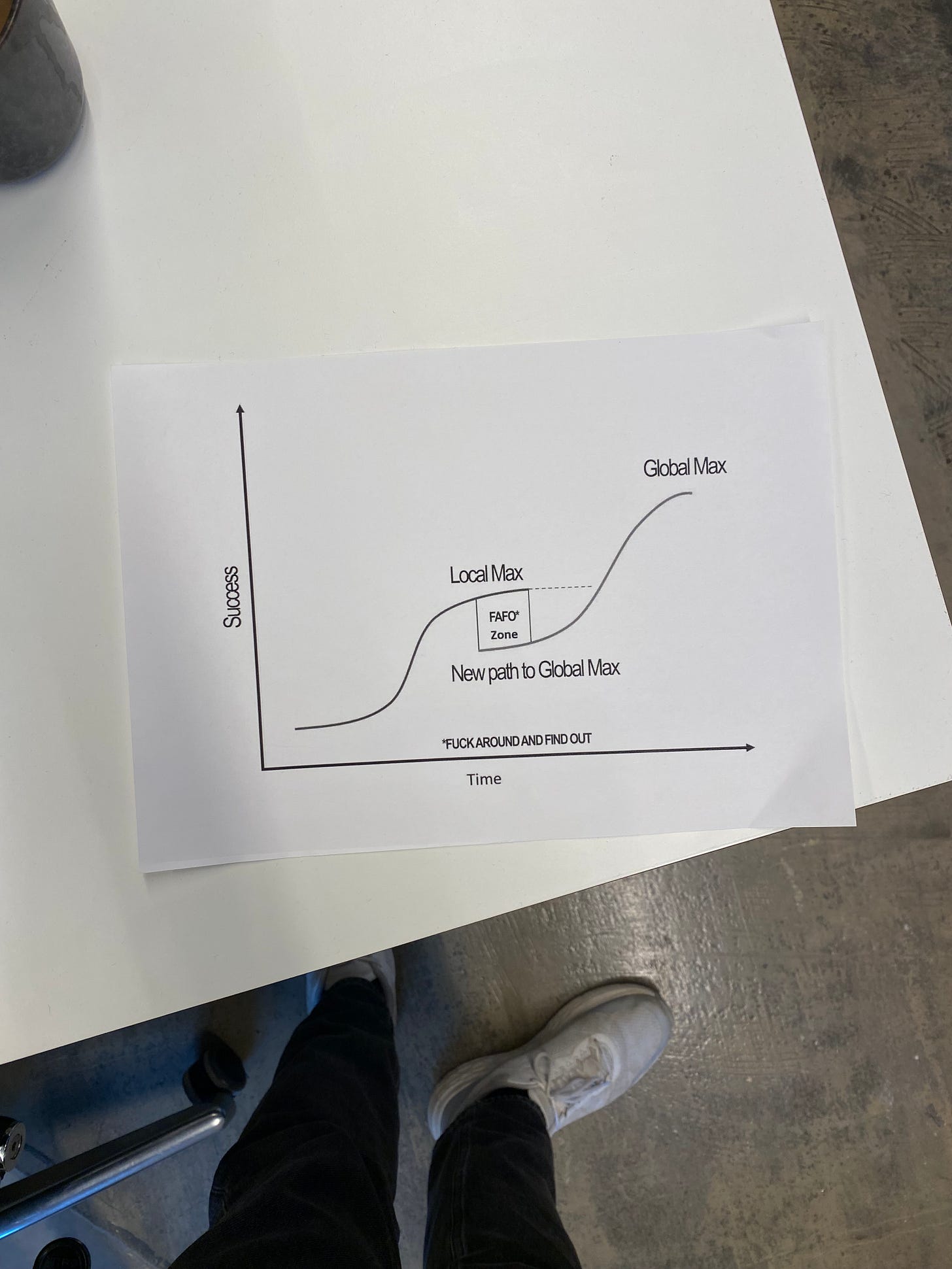#06 What’s Up With the Three Pyramids?
Thinking about what drives change, how predictable our lives are and is there such thing as free will?
I write this newsletter to structure my experiences and ideas around creativity. It’s mainly a personal exercise in writing, but I’m sure there is something for you as well.
My name is Juho Vesanen and I’m a co-founder of Veli Studio. I’m also editing the studio’s annual passion project Attraction Magazine – a printed and online exploration dedicated to the appreciation of visual curiosity.
#06 What’s up with the three pyramids?
We all appreciate structure, habits, and comfort to a certain degree. We're also adept at recognising patterns in our behaviour by retrospectively analysing random events and organising them into a coherent personal history. Understanding the patterns and habits that come "naturally" to us is quite a crucial part of our existence. It's easy to acknowledge the influence of our family, socio-economic background, and geographical location. These factors, which we have little control over, likely affect our decisions. Even if we resist these "givens," they still shape our choices.
When aspects of life are deeply interconnected, it establishes a status quo that is hard to disrupt. This power of interconnected generational memories, habits, and expectations is evident everywhere and is affecting all of us.
There is a wonderful interview on Emergence Magazine (vol.2) with Andri Snær Magnason where he entertained this thought experiment on why is there three pyramids in Giza, Egypt, that touches on this same topic:
“I would bet that they were not built starting with one pyramid first and then, five hundred years later, another pyramid. I bet there was just one crazy period when they made these three pyramids, because it’s not possible to build one pyramid. If you’re going to build one pyramid and have forty thousands people building it for forty years, you don’t stop doing that. You don’t just say, “Thank you, you can go home now.”
Because if you are building a pyramid with forty thousand people for forty years, that’s what your economy is about. It’s about building pyramids.
If you stop building pyramids, you have chaos.”
This thought experiment may cut some corners, but the core concept can apply to many current situations, regardless of their scale. Breaking from routine to try something new is always extremely challenging.
I recently had a conversation with a friend considering starting his own business and leaving the corporate world. Despite the work being similar, he hesitates due to his current job's good pay and stability, both crucial especially in today's economic landscape. However, there's an underlying dissatisfaction he's grappling with. Each person has their own "tipping point" where they either accept their discontent or act on it. Often, external factors, like a pandemic, can encourage change, as it's easier to adapt when everyone else is also adjusting. The most challenging type of change, like the one my friend is contemplating, occurs when there's no apparent need to change and where his decision may be met with confusion or surprise. With change you usually lose something to be able to gain another thing as a result.
There is this saying that power tends to corrupt; absolute power corrupts absolutely. I guess this also goes with privilege. Once we attain a certain level of anything, it becomes very challenging to relinquish it, prompting us to construct walls around it so that we don’t lose what we have.
I found a related analogy in the Netflix show "Ripley." The characters were discussing which refrigerator model to buy, debating between a model with a two or four-piece ice cube tray. Tom's response was chillingly pessimistic, but also oddly true:
“I think I’d rather hang myself than buy a refrigerator.
Why is that? Well because first its a refrigerator, then it’s well we might as well stay put because it’s so hard to move, and since we’re staying put we might as well get a sofa and other stuff too hard to move and a mortgage while we’re at it and before you know it you’re old and you haven’t gone anywhere and then you die and it all began with counting ice trays.”


Ok friends, that’s it for now. I’ll return to my walled garden, but I’ll leave the gate open.
CURRENT INSPIRATION
In relation to the text above about how our lives may seem predetermined and how changing the pattern is difficult, you might also entertain the question of is there such thing as free will?
THE STUDIO
Veli Studio is a full service creative studio based in Helsinki.
Website – Instagram – Behance – Linkedin – Attraction Magazine
LET’S CONNECT
Thank you for reading this far. If you found something worth sharing with others, please do so!
If you feel like we should talk, hit me an email – I promise to get back to you.




